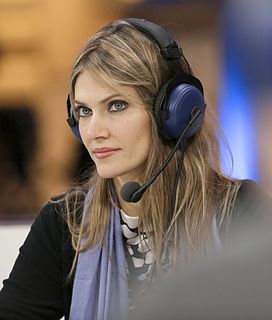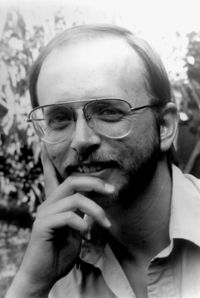A Quote by Madeleine Albright
And so I think that the idea of America working with other countries to solve problems is good for us, and it is part of digging us out of the 'my way or the highway' approach that was evident in the previous eight years.
Related Quotes
It is problems that we faced for 30 years and we had to solve them in a couple of years only and the solution really pushed us and the economy couldn't handle it. We had the greatest depression. It wasn't easy and I think we expected the results. But the other thing is we have to try to create the plan B and get us out of this crisis as soon as possible.
The technologies that will be most successful will resonate with human behaviour instead of working against it. In fact, to solve the problems of delivering and assimilating new technology into the workplace, we must look to the way humans act and react. In the last 20 years, US industry has invested more than $1 trillion in technology, but has realised little improvement in the efficiency of its knowledge workers and virtually none in their effectiveness. If we could solve the problems of the assimilation of new technology, the potential would be enormous.
Teaching and writing, really, they support and nourish each other, and they foster good thinking. Because when you show up in the classroom, you may have on the mantle of authority, but in fact, you're just a writer helping other writers think through their problems. Your experience with the problems you've tried to solve comes into play in how you try to teach them to solve their problems.
I don't believe that the American people want us to focus on our job security. They want us to focus on their job security. I don't think they want more gridlock. I don't think they want more partisanship. I don't think they want more obstruction. They didn't send us to Washington to fight each other in some sort of political steel-cage match to see who comes out alive. That's not what they want. They sent us to Washington to work together, to get things done, and to solve the problems that they're grappling with every single day.
I think part of the disappointing failure of the political process in America today is that it's asking us to forget countries' historic connections to other countries, or to the laws that have been made. They're willfully asking people to forget their country's history, and focus only on the present. It's bizarre.
We certainly would resolve the problems of the charities that are working in areas where they can do the most good. So if you consider that the U.S. foreign aid budget is 30 billion, yes, we could make a major contribution to reducing global poverty, start to deal much better with some of the other big environmental problems that the world faces. So I think we could solve a lot of problems.
I was born in the United States, I'm proud to be an American, I'm an American first. But obviously, I'm a Chinese-American. And growing up, my family, my parents, and I think rightly so didn't put us in Chinatown, didn't put us with our other ethnic group, but put us in mainstream America. They're thinking was that will help us assimilate into the mainstream and be a part of it. And it did. It certainly gave me tolerance of other people, of other races, of other ethnicities and I think that's helped make me a better person.
The major difference for us in America with respect to Hispanic immigration is that it is so large and that it is coming from neighboring countries rather than those countries off the Atlantic or Pacific. That creates different issues and different problems for us as compared to the past. It is still very different, however, from the situation in Europe where we see people with a very different non-European religion coming from neighboring countries.











































